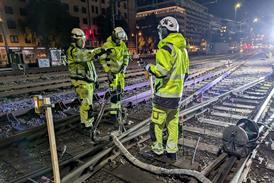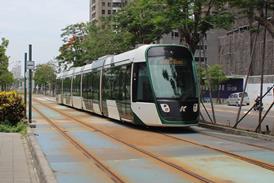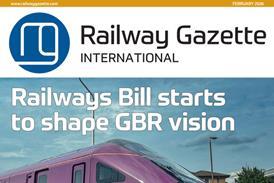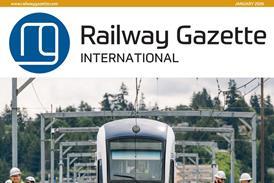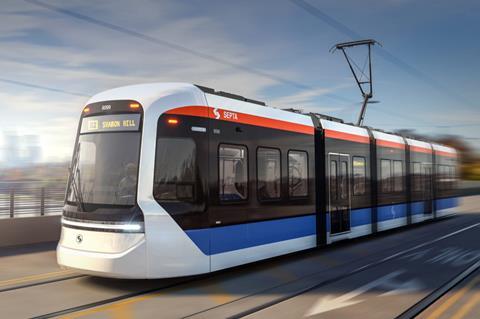
USA: The Southeastern Pennsylvania Transportation Authority board has selected Alstom Transportation to replace its entire Philadelphia trolley fleet with modern vehicles meeting current accessibility standards.
The contract announced by SEPTA on February 23 will include a $714m base order for 130 trams to be delivered in 2027-30, with options for 30 more.
Alstom told Metro Report International the Citadis trams would ‘bring state-of-the-art service to the people of Philadelphia’, providing ‘over 80 000 daily riders with a more accessible, comfortable and modern experience’.
The trams will replace SEPTA’s current Kawasaki LRVs which were delivered in 1980-82. Purpose-designed to cope with the network’s unusual 1 581 mm gauge and 10 m radius curves, the fleet comprises 112 single-ended four-axle vehicles for services radiating from the city centre and 29 larger double-ended cars used on two outer-suburban routes.
The five-section articulated Citadis trams are expected to provide more capacity than a pair of 15·2 m Kawasaki cars. The ADA-compliant low-floor vehicles will have wide aisles and designated spaces for wheelchairs, pushchairs and bicycles. They will also be equipped with advanced audio and visual passenger information systems.
Meeting the needs of all riders
In conjunction with the introduction of the new trams, SEPTA intends to rebuild its underground trolley stations and build low platforms at its on-street stops to provide level boarding and improve accessibility.
‘SEPTA is committed to ensuring our trolleys meet the needs of all riders – people with disabilities, seniors, families with small children, new users and anyone who needs a little more help to get where they are going’, explained General Manager & CEO Leslie S Richards. However, she added that ‘SEPTA is still seeking over $800m in competitive grants, and state and local funding, to make all the improvements necessary for seamless boarding’.
Fast, accessible and easy
The tram order is a key element in SEPTA’s Trolley Modernization programme which aims to ‘transform the nation’s largest trolley network into an accessible, fast, and easy-to-use system’.
This is in turn a core component of the SEPTA Forward strategy to transform the region’s public transport into a ‘lifestyle transit network’ which can be used easily for any type of trip, and is not focused specifically on traditional 9-to-5 commuting.
Funding is coming from SEPTA’s 2023 Capital Budget and 12-year programme. This also provides funds for developing the proposed branch off the 1 435 mm gauge Norristown High Speed Line to serve King of Prussia.
SEPTA Board Chairman Pasquale T Deon Sr said Trolley Modernization would ‘strengthen existing connections by improving transit services that link workers to jobs, students to schools, and diverse communities to each other — supporting local businesses and an affordable cost-of-living for everyone’.
